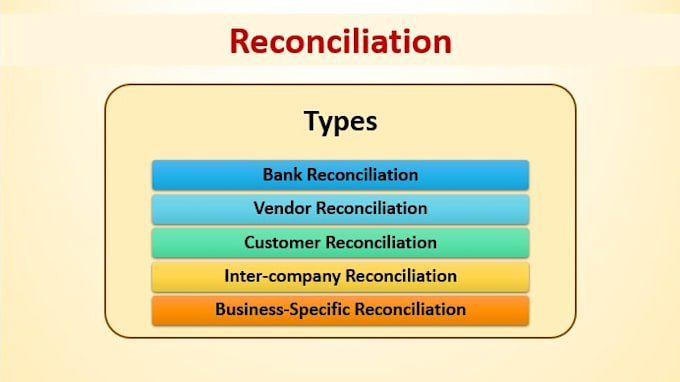My Family in Spanish: Essential Vocabulary and Phrases
How to say” my family ” n spSpanish
Learn how to talk about your family in Spanish is one of the about practical and rewarding aspects of study the language. Whether you’re prepared for a trip to a Spanish speak country, connect with Spanish speak relatives, or plainly expand your language skills, family vocabulary is essential.
The basic phrase for” my family ” n spSpanishs:
Mi familiar [ Mee FAH Mee Leah ]
This simple phrase is your gateway to discuss one of the virtually important aspects of human connection across cultures. Let’s explore everything you need to know about talk about family members in Spanish.
Basic family vocabulary in Spanish
To will talk about your family in Spanish, you will need to know the terms for different family members. Hither’s a comprehensive list of the almost common family terms:
Immediate family members
- Mother La made [ lLAHmmydrdrew or mamama mamyahmy
- Father El padre [ el PAH drew ] or papa [ pah ]
- Parents Los padres [ loss PAH dress ]
- Sister La Herman [ lah ehermy nah ]
- Brother El Herman [ eELer mmyno ]
- Siblings Los Germans [ llosser mmynoNHS
- Daughter La HIA [ lLAHeEEhah ]
- Son El Hilo [ el EE ho ]
- Children Los his [ lolosseEEohops
Extended family members
- Grandmother La Abel [ laLAHh bwBEHahLAHor abuAngelitaah bweBEHe tah TAH
- Grandfather El Abel [ elELh bwBEHo ] or abuManuelitoah bwBEHee to ]
- Grandparents Los Buenos [ llossah bBEHloloss
- Aunt La Tia [ LAH tee ah ]
- Uncle El to [ eELtee oh ]
- Cousin (female ) La prima [ LAH free my ]
- Cousin (male ) El primo [ el pree mo ]
- Niece La Sabrina [ LAH thusly Bree nah ]
- Nephew El soprano [ EL thusly Bree no ]
- Granddaughter La Nita [ lLAHnnéeeh tTAH]
- Grandson El into [ eELnnéeeh to ]
In laws and stepfamily
- Mother-in-law La sugar [ lLAHsSwedggraph]
- Father-in-law El Duero [ el sSwedggo]
- Daughter-in-law La nu era [LAHhnewo eh rah ]
- Son-in-law El yer no [ elyearr no ]
- Sister-in-law La Canada [ LAH Kew Noah day ]
- Brother-in-law El Canada [ el Kew Noah do ]
- Stepmother La Adrastea [ lLAHmmydrdrawsrtram
- Stepfather El Adrastea [ el pPAHddrawstto]
- Stepsister La hermanastra [ lah hermyh NHS ttram]
- Stepbrother El hermanastro [ EL er my nNHStrto
Use possessive adjectives with family terms
To say” my family ” r will refer to specific family members as yours, yoyou willeed to will use possessive adjectives. Here are the near common ones:
- My me (singular )/ mis ( (ural ) )
- Your (informal ) (TUi(ular ) / )s ( usra() )
- Your (formal ) (SUi(ular ) / )s ( SUSr( ) )
- His / her / their SU (singular )/ suSUS (ural ) )
- Our Maestro / a (singular )/ numaestros as ( (ural ) )
- Your (plural, informal ) esmaestro ( si(ular ) / )estrmaestros( plur( ) )
- Their SU (singular )/ suSUS (ural ) )
Hither are examples of how to use these with family terms:
- My mother Mi made
- My parents Mis padres
- Our family Neustriafamiliara
- Your sister (informal ) hTUmHerman
- Your brothers (formal ) s SUSmGermans
- His / her grandmother SU Abel
Useful phrases about family in Spanish
Straightaway that you know the basic vocabulary, hither are some practical phrases to talk about your family:
Introduce your family
- This is my family ESTA ES mi familiar [EHSsTAHhEHSsMeeeFAHhMeeeLeahh ]
- I have a big family Tango Una familiarGrandee [thenn goOOo nahFAHhMeeeLeahhgrainnDelh ]
- I have a small family Tango Una familiarsequenta [thenn goOOo nahFAHhMeeeLeahhpenhkeyhNoahh ]
- I live with my family Vivo con mi familiar [ beeBeaonkoMeeeFAHaMeeeLeahah ]
- Let me introduce you to my family Defame presentable a mi familiar [Delh hah mehpreyhseenn tartheh ahMeeeFAHhMeeeLeahh ]
Describe your family
- I have two brothers and one sister Tango dos Herman y uUnahHerman
- My mother is a doctor Mi made eESmmedia
- My father work as an engineer me padre Tabata cComoiingenious
- My grandparents live in Mexico Mis Buenos vgivenen mMexico
- My family is selfsame important to me Mi familiarESsmayyimportante para MI
- We are a close-fitting knit family Solos Una Family Guy uUNIDO
Ask about someone’s family
- Do you have siblings ¿ Tines hGermans
- How many children do you’ve? ¿ Cantos hhistietines
- How’s your family? ¿ Como ESTA TU familiar?
- Do your parents live nearby? ¿ Us padre vgivenccirca
- Tell me about your family Blame de tuTUafamiliar
Cultural considerations when discuss family in Spanish
Family is a central element in Hispanic cultures, and understand certain cultural nuances will help you’ll navigate conversations about family more efficaciously:
The importance of family
In many Spanish speak countries, family bonds tend to be really strong. Extended family members oftentimes live faithful to each other and participate actively in each other’s lives. Family gatherings are common and important, and multiple generations may live unitedly under one roof.
Last names in Spanish speak countries
In most Spanish speak countries, people have two last names: the father’s last name follow by the mother’s last name. For example, if Juan MartÃnez and Maria Lopez have a child name Ana, her full name would be Ana Martinez Lopez.
When refer to someone officially, you typically use lone the first of their two surnames. For instance, Ana Martinez Lopez would typically be address as señora Martinez in formal settings.
Terms of endearment
Spanish speakers ofttimes use diminutive forms as terms of endearment, particularly when refer to family members:
- Mama → Marita
- Papa → capita
- Abel → abAngelita
- Herman → hhumanity
- To → tTito
Regional variations in family terms
While the terms list supra are wide to understand acroSpanishish speak countries, there be some regional variations worth note:
Spain
- Mom Mama, but too” mmade”” usually use
- Dad Papa, but besides” padre ” s ordinarily use
- Grandma Abel, sometimes “” yMaya” certain regions
- Grandpa Abel, sometimes “” yMayo” certain regions
Mexico and Central America
- Mom Mama, AMA, Jeff (informal )
- Dad Papa, APA, Jeff (informal )
- Grandma Abel, abAngelitanaNana
- Grandpa Abel, abManuelitotTata
South America
- Mom Mama, Miami
- Dad Papa, PPI
- Grandma Abel, abAngelitanoNona (culiarly in argArgentina)
- Grandpa Abel, abManuelitonnon( (culiarly in argArgentina)
Caribbean
- Mom Mama, Mai (pPuerto Rico)
- Dad Papa, pie (pPuerto Rico)
- Siblings In Cuba,” hHerman”” ofttimes shorten to ” ” omany” asual speech
Common mistakes to avoid
When talk about family in Spanish, be aware of these common pitfalls:
Gender agreement
Remember that Spanish nouns have gender, and adjectives must agree with them. For example:
- Mi Herman Alto (my tall brother )
- Mi Herman Alta (my tall sister )
False friends
Be careful with words that look similar to English but have different meanings:
- Embarazada Does not mean” embarrassed ” ut “” egnant ” ”
- Parents Mean” relatives ” not “” rents ” ” ch is ” p” es ” ) ”
Use” mme” s. “” s ”
”
Remember to use” mme” or singular nouns and “” s ” ” plural nouns:
- Mi Herman ((y sister )) gular
- Mis her manas( my sisters) lural
Practical exercises to practice family vocabulary
To solidify your understanding of family vocabulary in Spanish, try these exercises:
Create a family tree
Draw your family tree and label each person with their Spanish family term. For example, write” mi mmade”” jacent to your mother, ” ” hermHermand” ent to your brother, and then along.
Practice sentences
Try to translate these sentences inSpanishish:
- My family have five members.
- I have two brothers and one sister.
- My mother is a teacher.
- My grandparents live in another city.
- This weekend, I’m visit my aunt and uncle.
Answers:
- Mi familiarTaineeCiscoomaimerss.
- Tango dos Herman y uUnahHerman
- Mi made eEl Profesor
- Mis Buenos vgivenen ookracCiudad
- Este fin de Semang, VOY a visitor a mi Tia y mi to.
Conversation practice
Practice this dialogue with a friend or language partner:
Person a: Hola, ¿ tines hGermans ( (, do youyou haveblings? )
Person b: SI, tango Una Herman mayor y un hHermanmeminor¿ y YúTU( (s, i hIve an older sister and a younger brother. And you? )
Person a: Soy Hilo UNIDO. ¿ Como seellaman us hGermans ( (mIan only child. What are your siblings’ names? )
Person b: Mi Herman sseellama Elena y mi Herman sseellama Carlos. (my sister’s name is eElenaand my brother’s name is cCarlos )
Person a: ¿ Five con TU familiar?( do you live with your family?
Person b: SI, vivo con mis padres y mi Herman. Mi hHermanesESTAstudiando en otokraiCiudad( (s, i lIve with my parents and my brother. My sister is study in another city. )

Source: dcmp.org
Technology tools to help you learn family vocabulary
Take advantage of these resources to practice Spanish family vocabulary:
- Language apps Duolingo, Babbel, and demise all have specific lessons on family vocabulary
- Flashcard apps Anti or Quizlet can help you memorize family terms
- YouTube channels Spanish language YouTubers oftentimes talk about their families, provide authentic exposure to family vocabulary
- Spanish TV show Watch family orient shows like” la cCaseyde las flors ” r “” écentimemoComoóPaso” ear family terms in context
Conclusion
Will learn how to say” my family ” n spSpanish “” famfamiliar scarcely the beginning of a rich vocabulary that will allow you to will connect with spanSpanishakers on a personal level. Family is central to hispHispanictures, make this vocabulary especially valuable for meaningful conversations.

Source: spanishplanetschool.com
Remember that consistent practice is key to master these terms. Try to incorporate family vocabulary into your daily Spanish practice, whether you’re described your own family, ask someone about theirs, or plainly review flashcards.
As you’ll continue your Spanish language journey, you’ll find that being able to will discuss family will open doors to deeper cultural understanding and more meaningful relationships with Spanish speakers. ¡ Buena sure! ( (od luck! )



